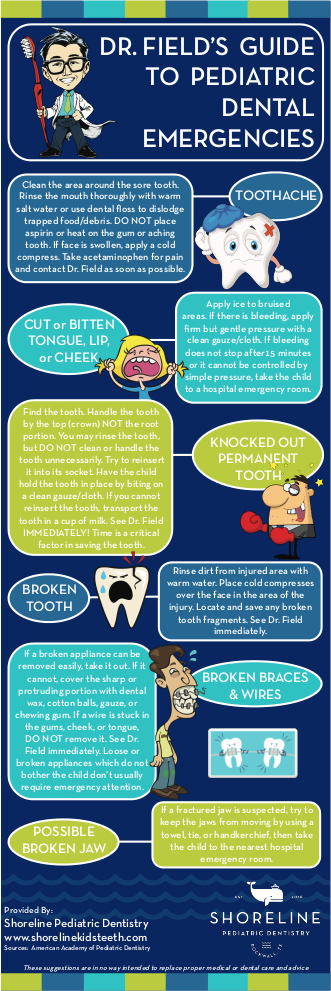What is the difference between a pediatric dentist and a family dentist?
A pediatric dentist receives additional training to become more highly qualified to care for young patients. To learn more about how our office and dental experience is tailored toward treating children, you can check out our
Pediatric Dentistry page.
At what age should I bring my child into the dentist for the first time?
Really, as soon as your baby has teeth, they should start receiving dental attention! Every baby is different, but the average age they start getting teeth is six months. The American Academy of Pediatric Dentistry (AAPD) suggests that children should be brought to the dentist for the first time when they’re a year old or even earlier.
How frequently should my child see the dentist?
Your child’s baby teeth are important to their future, and we know you want the brightest future for your child! Just like adults, children should visit the dentist once every six months. Visits may need to be scheduled more often, depending on the level of treatment they need.
When and how should I start brushing and flossing my child’s teeth?
Once your child’s teeth have come through the gums, they need to be cared for. Use a soft-bristled toothbrush and toothpaste with fluoride to thoroughly brush the teeth and gums.
What about flossing? Flossing is also important, even for little teeth. Plus, it’s necessary if adjacent tooth surfaces cannot be cleaned with a brush. However, if your child’s teeth are still widely spaced, they might not need flossing.
What if my child cries while having their teeth brushed?
Babies and children often get fussy when parents brush their teeth. Try distracting them with a game, toy, or song. When parents make this practice consistent, children learn that brushing their teeth is an important part of their daily routine.
What about cavities?
Does your child carry around a sippy cup or grab snacks frequently? Breaking these habits could improve his or her dental health.
You can keep your child’s risk factor of dental decay low by limiting eating and drinking just to mealtimes. You can also encourage your child to eat healthy snacks like fruits, vegetables, or dairy instead of chips, crackers, or sweets.
Bring your child in to see us frequently for dental examinations. If your child does have a cavity, it is easily treatable if we detect it early enough.
What if my child is nervous about visiting the dentist’s office?
We specialize in making your children feel right at home. We will do everything we can to create a positive and enjoyable experience for your child. To learn more about getting your child ready for a dental visit, visit our “
Preparing Your Child” page.
We also provide safe sedation dentistry options for your children. You can learn more about our conscious and IV sedation options on our sedation dentistry page.
Why are baby teeth so important?
Even though baby teeth eventually fall out, they are important to your child’s oral health and development. Well-maintained baby teeth help your child learn to chew properly and speak clearly.
Most children don’t lose all of their baby teeth until they are twelve. How your child cares for their baby teeth will affect how they care for their adult teeth. Children who learn good oral hygiene habits early are more likely to maintain those habits later and are less likely to develop dental problems.
Furthermore, baby teeth maintain space for incoming permanent teeth. If a baby tooth is lost too early, it could affect the spacing of your child’s permanent teeth underneath the gumline. Even worse, decay in baby teeth can lead to infections or abscesses that could spread to the surrounding tissues.
What if my question isn’t answered here?
We are happy to answer any other questions you may have! Call us today to ask more or to schedule an appointment.
See our Pediatric Dental Emergencies Guide for more details on what to do in some emergency situations.

We are happy to answer any other questions you may have. Call us today to schedule your appointment.

